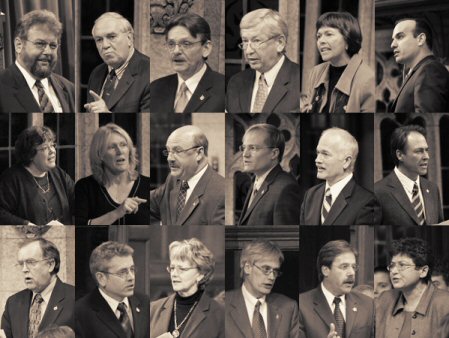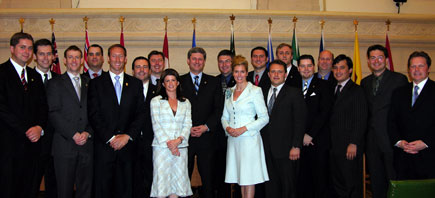The NDP claims to be the party of youth and thus claims to appeal to voters of my generation. Let’s take a look at the “party of youth”…
The NDP currently has 19 MPs in their caucus, 18 of which are older than 40.

The NDP caucus could hardly be described as “youthful”, except maybe for this guy:

This is NDP MP Brian Masse and he’s 37.
Contrast the NDP with the Conservative Party of Canada. The Conservative Party has 20 MPs who are either 40 or younger. That’s right, the Conservative Party has a greater number of young MPs than the NDP has MPs of any age in its entire caucus. The Conservative Party continues to attract youthful candidates to run against the old and tired Liberal and New Democratic Parties. The young professionals in the Conservative caucus represents significant momentum in the party and reflects a greater representation of my generation.

The Young Conservative Caucus
I have come to the conclusion that the NDP (and similar socialists) have a political philosophy that is based upon two common fundamental beliefs: that our society is wrong, and that it must be changed. Consider the status quo approach to any issue and the NDP has fought, or is fighting, for society to change it (e.g. environment, labour, marriage, economy, defense etc.)
I think that the NDP stereotypes young people as naturally contrarian (ie. rebellious adolescents). Most of my peers do have concerns about society, however, their concerns are rooted in whether or not they’ll be able to make a good life for themselves and their families and whether or not their families will be safe in their communities and in the world. We’re a lot more mature than the NDP would wish us to be.
CORRECTION: Daveberta has pointed out that I misplaced NDP MP Nathan Cullen who is actually 33. Upgrade that youthful NDP total to 2 MPs. Huzzah!